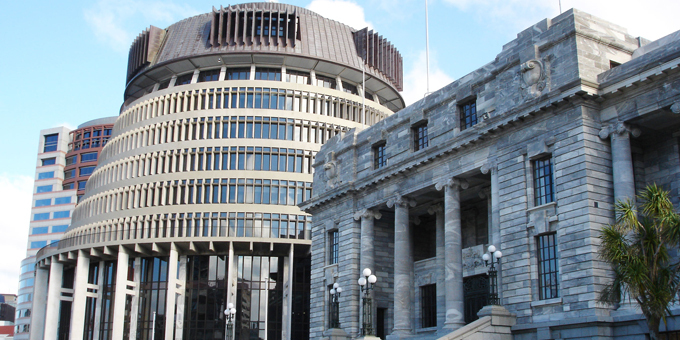December 08, 2014
How should Waitangi Tribunal ruling on Sovereignty be implemented?


How should Waitangi Tribunal ruling on Sovereignty be implemented?
MARTYN BRADBURY
I'd like to back track this weeks column to the Waitangi Tribunal ruling that Maori did not sign away their sovereignty in 1840.
How does such a ruling become part of a new political power structure that respects and upholds the status of Maori while benefitting all NZers?
One of the problems with NZ politics is that we have a unicameral Parliament, that means we just have one chamber with no upper house. This means NZs Parliament is one of the most powerful Parliaments in the world. It allows for legislation to be read straight into law and is one of the reasons why the neoliberal revolution was so ruthless and impossible to reverse.
I think one solution to the Waitangi Tribunal ruling is to consider a NZ Parliament Upper House that has 50-50 representation between Maori and Pakeha. If Sovereignty was never signed away, then the Government of today has a responsibility beyond paltry compensation for past injustices , it must provide real power sharing solutions.
Having a 50-50 Upper House with the power to delay legislation that was not in the best interests of the Nation when it comes to Treaty issues would stop Government's from fire sales of national assets and prevent things like the Foreshore and Seabed legislation from becoming law.
An Upper House would be seen as a guardian of the Treaty for the maintenance of public well being over private gain, it would show real power sharing and for Pakeha, it would represent a political body that protect their public interests as much as Maori interests.
National's sale of energy assets is a case in point. Maori gifted the use of water from lakes and rivers because the assets being built using them were for all NZers. When the Government went and privatised those assets without any compensation to Maori, that sparked a prolonged Court battle that could have prevented the Government from going ahead with the sale. If an Upper House existed with 50-50 representation, this law could have been voted down and delayed.
Government's in NZ have a history of passing law with mere lip service paid to real consultation, if Maori never signed their sovereignty away, an Upper House that created real power sharing would benefit every New Zealander.
Martyn Bradbury
Editor – TheDailyBlog.co.nz
Citizen A – Face TV Sky 83
Facebook/CitizenBomber
twitter.com/CitizenBomber
Copyright © 2014, UMA Broadcasting Ltd: www.waateanews.com













